
The question was never whether he had the lungs or the legs. They had been proven on the track and the road countless times. The question was whether Geraint Thomas could carry his body over cobbled track and hard hills, whether he could climb into the sky and fly back down a sheer mountain face, day after day, without getting hurt. Thomas had to prove he could make it through the gruel of a three-week grand tour intact without “DNF” after his name.
Perhaps, too, there was a lingering question over his mentality. Thomas didn’t have the bravado of Bradley Wiggins, nor the steely focus of Chris Froome. On the surface, he was the easy-going Welshman who enjoyed a few beers in his downtime, not the picture of a ruthless winning machine. He was the perfect domestique, the dream team player. But could he lead a group of elite riders into the battlefield of a Tour de France?
In 2018, aged 32, he answered those questions emphatically. In the shape of his life, Thomas conquered a brutal Tour, while Froome faltered two months after winning the Giro d’Italia. Thomas grew into the race with a typically understated presence before grabbing hold of the yellow jersey with victory in La Rosiere on stage 11, attacking with the unmistakable punch of a potential champion.
It laid the ground for his greatest moment, victory atop the iconic Alpe d’Huez the following day. That picture, crossing the line with fists clenched while howling into the mountain air, remains perhaps the defining image of a 20-year career, the one he should have framed somewhere in his house.
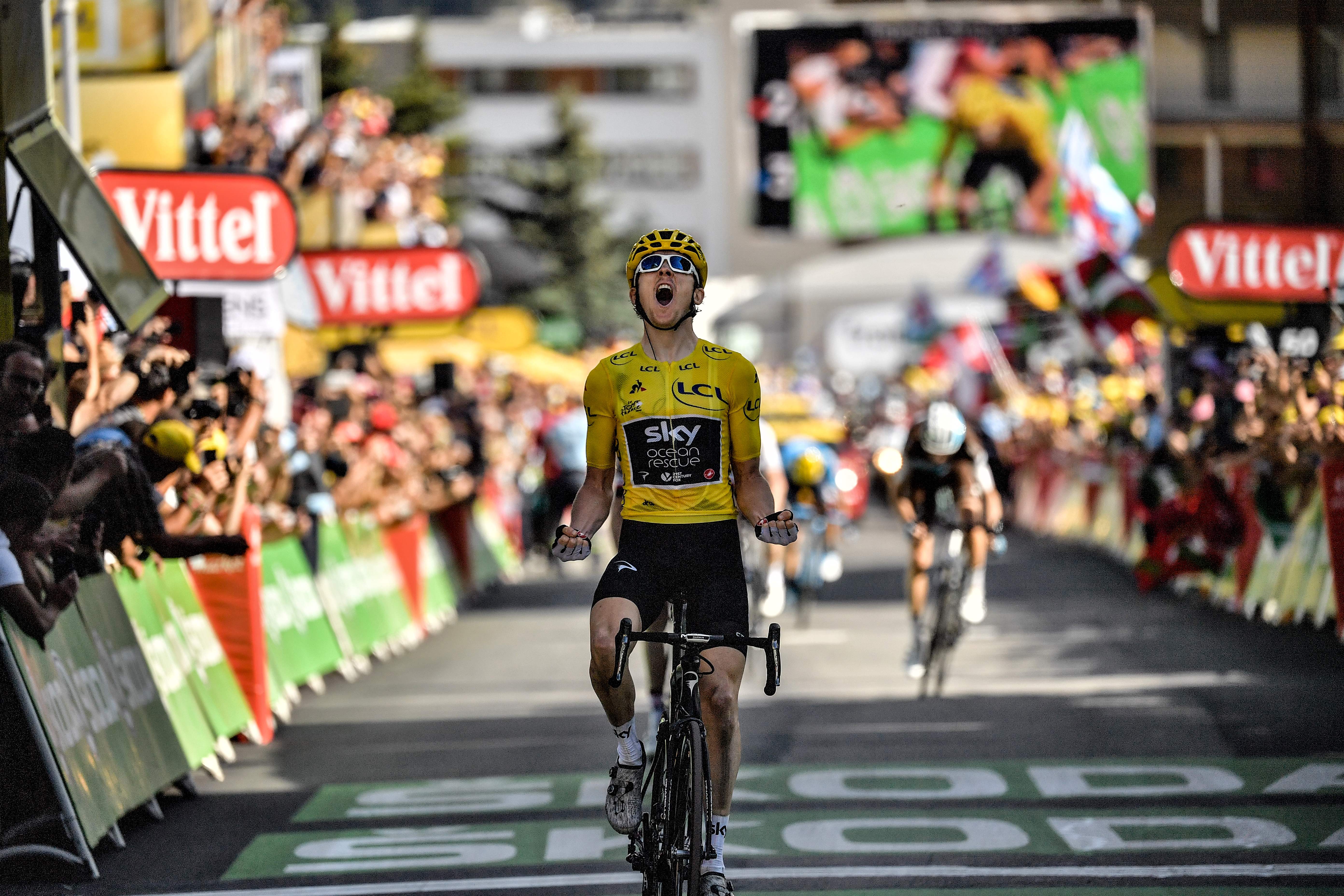
His resilience on the Col du Portet a few days later underlined his status as the strongest rider in the peloton, flinging open his yellow jersey on a burning hot afternoon as he resisted a wave of attacks from rivals Romain Bardet, Primoz Roglic and Tom Dumoulin on the climb, before shaking them off near the summit to extend his lead to nearly two minutes with only three stages to go.
As it turned out, his laidback mentality was an asset as the attention ratcheted up through the three weeks and questions rained on his relationship with teammate Froome, who had started the race as both team leader and favourite to win a historic fifth yellow jersey. Thomas calmly assumed control, seamlessly usurping Froome as Sky’s de facto leader, not by a bloody coup but instead by a gentle undermining of power.
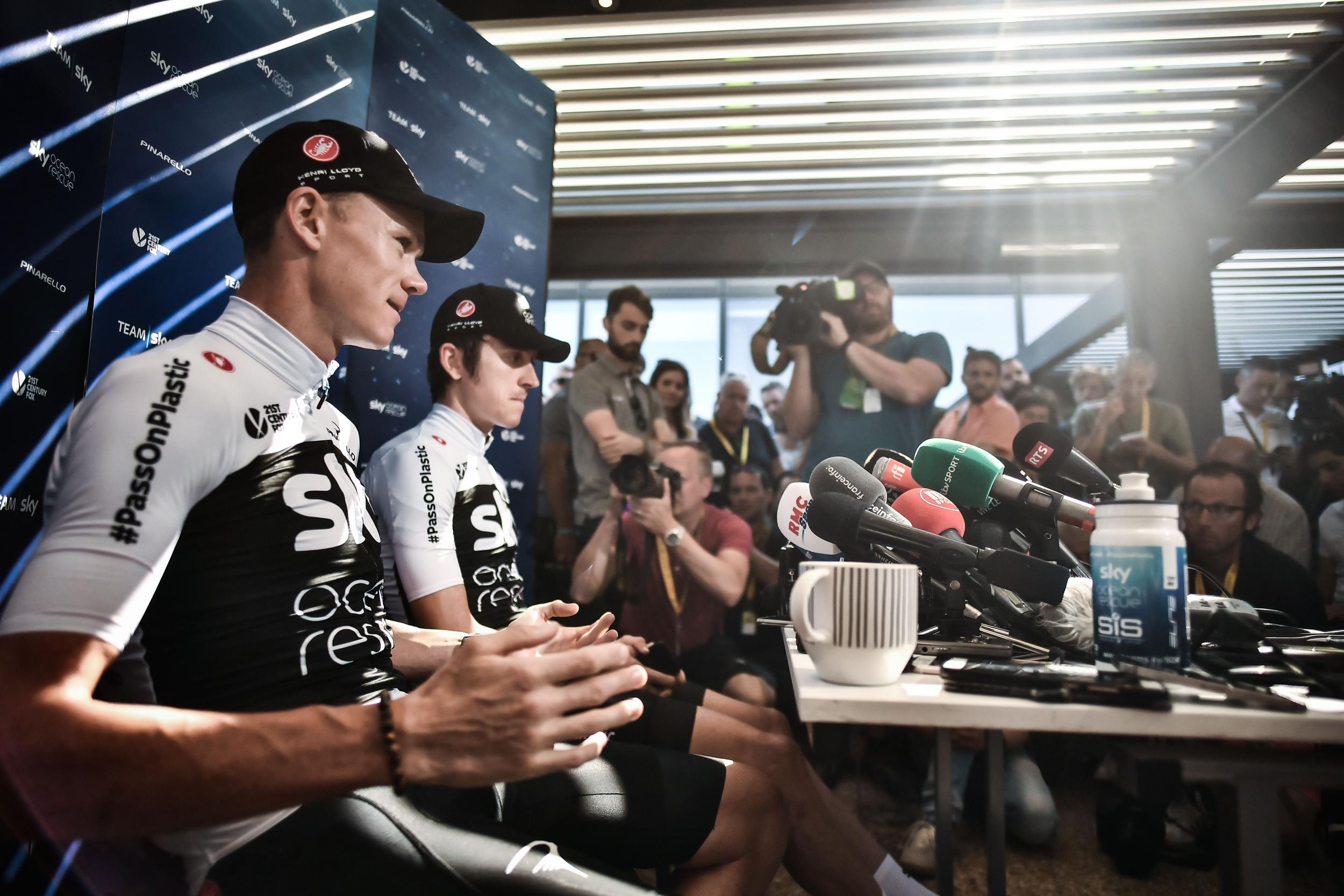
Thomas defused the press tent of any tension on the second rest day when he joked: “We get on – for now, anyway.” When asked whether he wanted to win the Tour in the second week or was just there to support Froome, he began: “I could give you some PR bullshit but I’m not going to,” and after his brilliant performance on stage 19, he gave a self-deprecating nod to his history of untimely crashes, saying: “Anything can happen in cycling – especially with me.”
It was this aspect of Thomas, his ability to find the funny in almost any situation, that made him so likeable, and so no wonder seemingly half of Wales turned out to welcome him home. He promised to party for weeks, maybe months, and later admitted that he didn’t seriously refocus until January the following year.
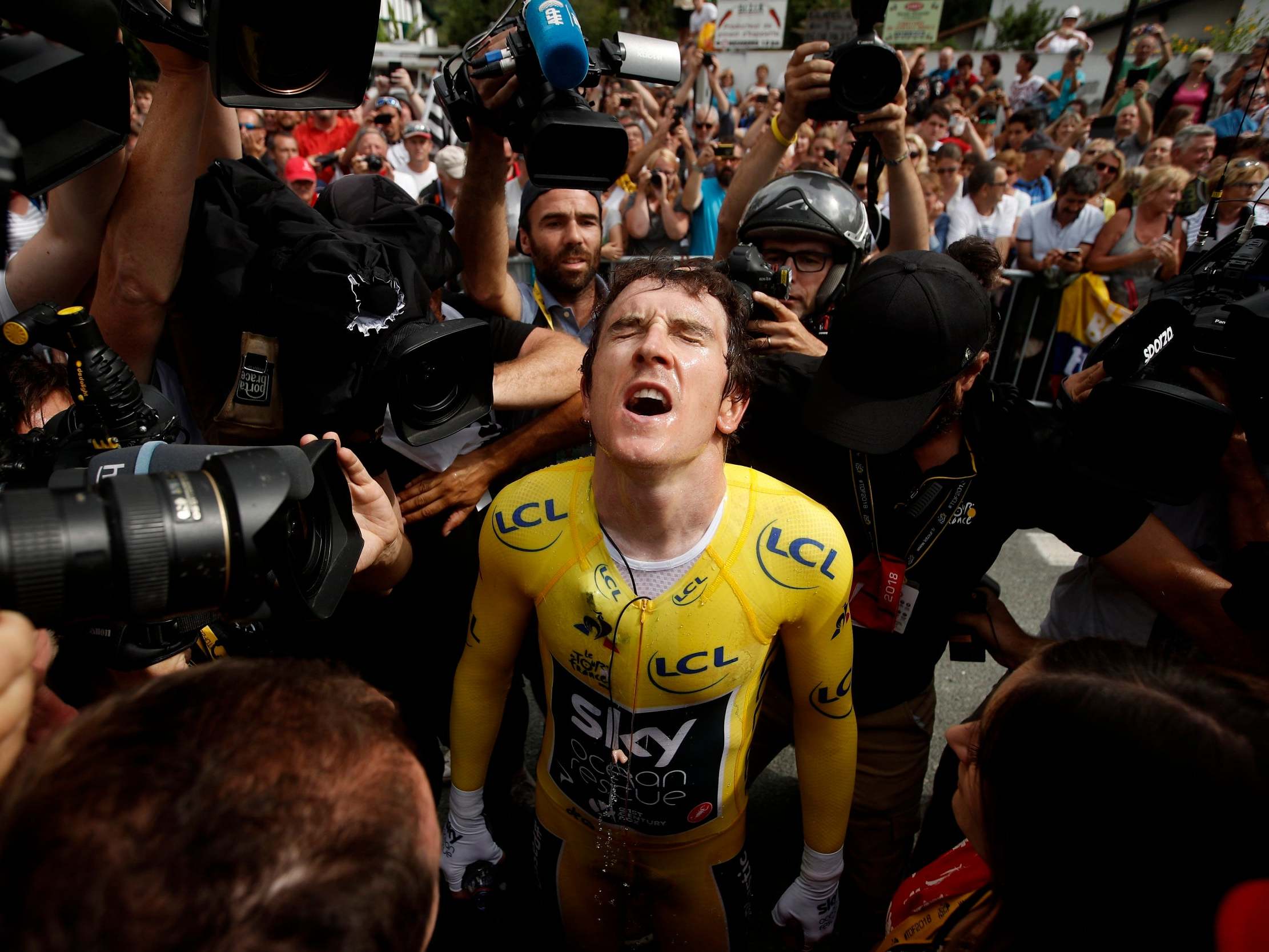
Defending his crown in 2019 was much harder. Thomas got himself back in shape but crashed at the Tour de Suisse, two weeks before the Tour de France. His young teammate Egan Bernal swept to Suisse victory and although Thomas recovered to make the start line of the Tour de France, the pair were installed as co-leaders by Ineos team principal Dave Brailsford in an obvious downvote of confidence in Thomas’s form.
Thomas was clearly a little shaken, and Bernal was too strong. After the Colombian’s yellow jersey was all but confirmed on stage 20 atop Val Thorens, I found Thomas sitting on a little wall outside the media tent. He was exhausted and was clearly hurting. This was perhaps his best chance to become a multiple grand-tour champion and it had slipped by. Yet the next day, he smiled and held his teammate’s hand magnanimously as they processioned down the Champs-Elysees, the bridesmaid once more after years serving Wiggins and Froome.
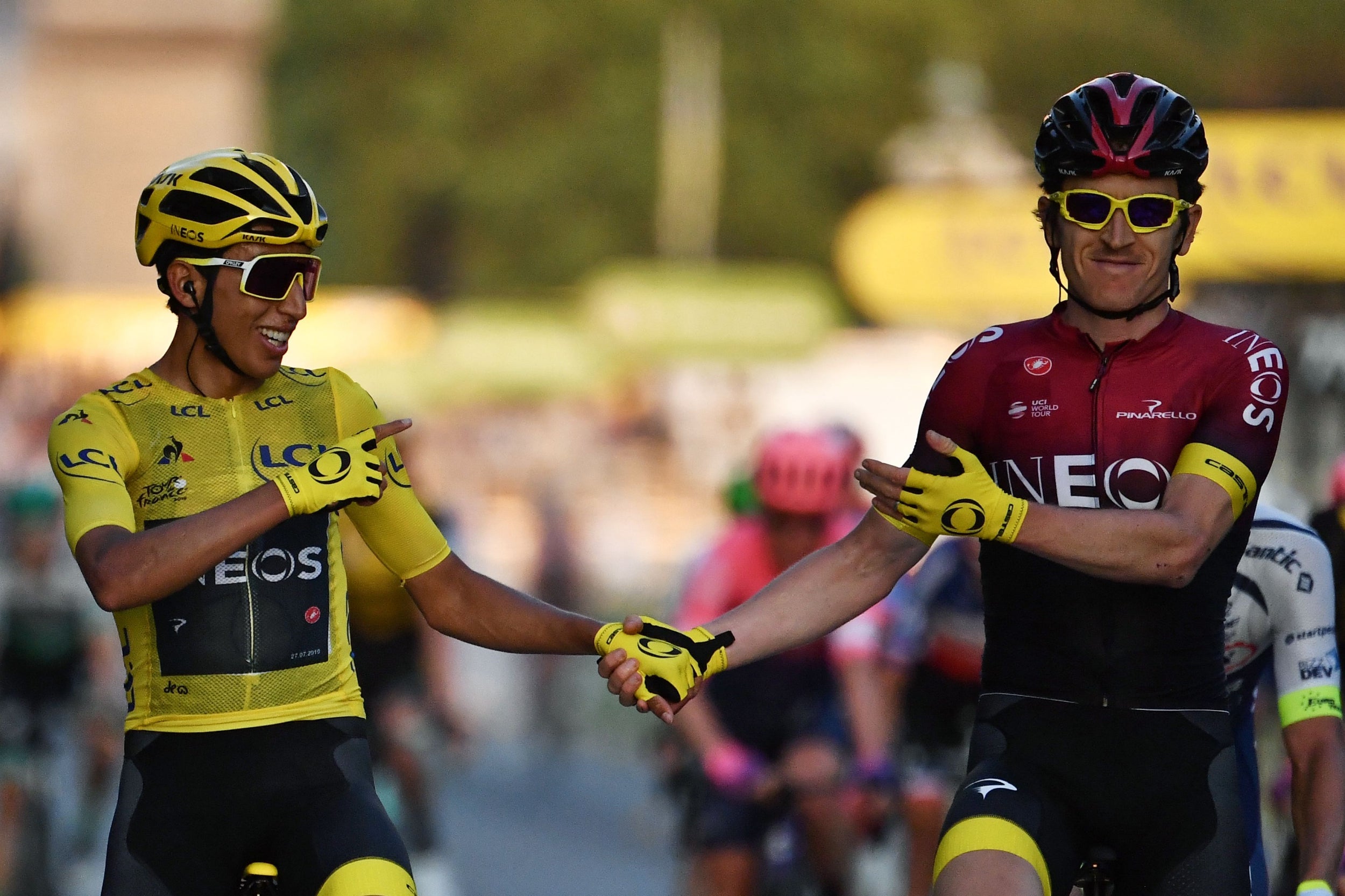
There have been many other glories, like the Olympic golds won in Beijing (looking barely a man) and London, and notable stage races such as Paris-Nice (2016), Dauphine (2018), Romandie (2021) and Suisse (2022). From track to time trial to the highest Alpine roads, Thomas proved to be an accomplished all-round talent.
He rode the wave of British Cycling’s transformation, from no medals at the 1996 Atlanta Olympics to 14 medals at Beijing 2008. Britain boomed into a cycling powerhouse under performance director Brailsford, who then set Team Sky on the quest of winning the Tour de France and achieved the feat with Wiggins in 2012, before Froome’s years of domination and Thomas’s triumph.
Thomas had a front-row seat for the low moments too, like the Jiffy bag scandal which ended with a government select committee accusing Team Sky of “crossing the ethical line that David Brailsford says he himself drew”. Froome’s adverse analytical finding cast another shadow over the team, but Thomas emerged largely unscathed from this period, unruffled, with the air of a man who not only opposed doping but probably thought it was too much faff.
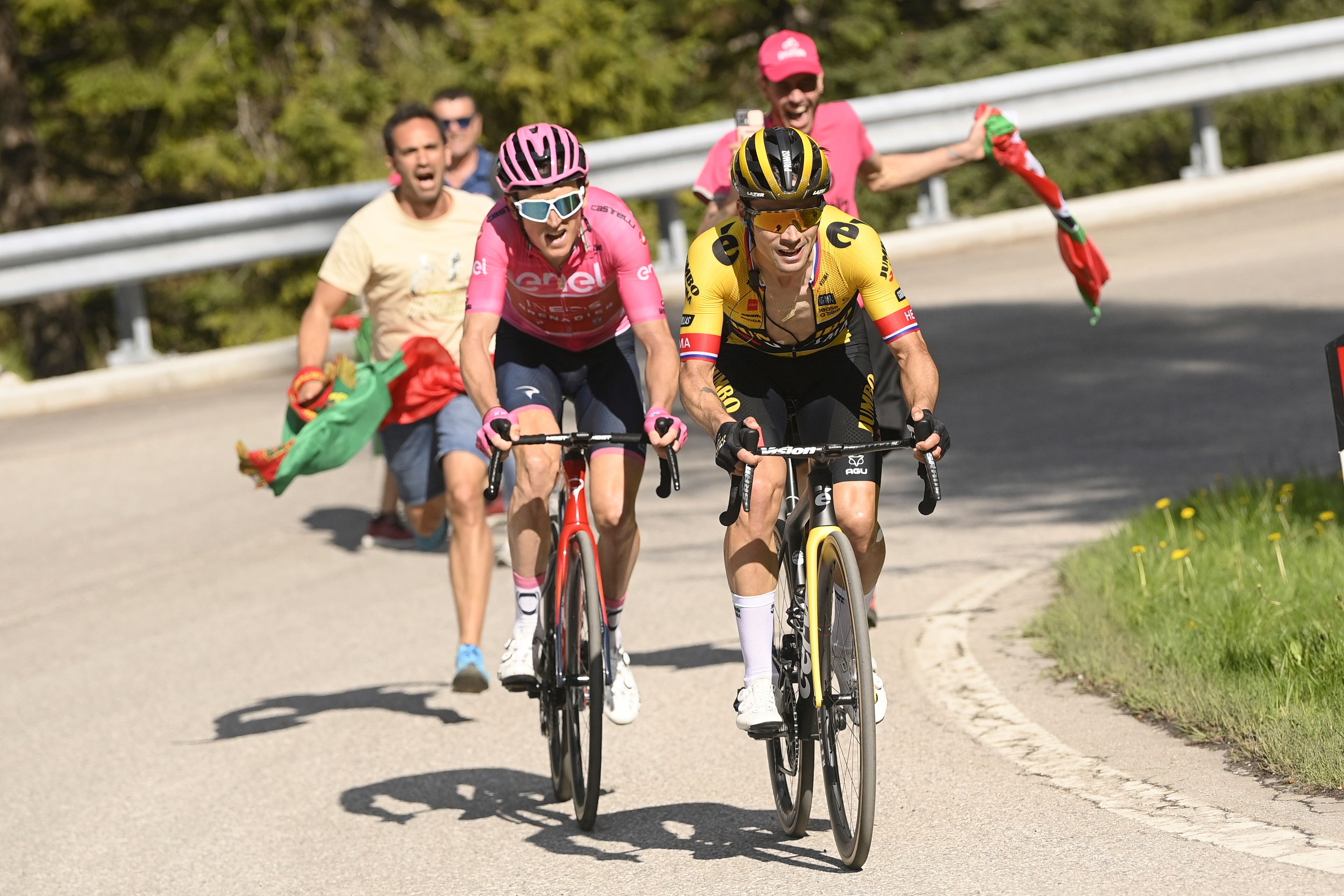
He came close to becoming a multiple grand-tour champion, not just at the 2019 Tour de France but agonisingly missing out on the 2022 Giro d’Italia by 14 seconds to Primoz Roglic. Thomas finished on the Giro podium again last year, showing remarkable longevity into his late thirties, and yet the 10-minute gap to winner Tadej Pogacar underlined the challenge in toppling the sport’s new stars.
And so perhaps, as he predicted, Thomas might be remembered as a one-hit wonder. He achieved so much more but if so, at least it was the greatest hit of all. “I got into cycling because of this race,” he said on the winners’ podium in 2018. “I remember running home from school to watch it. The dream was always just to be a part of it. Now I’m here in the yellow jersey and it’s just insane.”
In winning the Tour de France, one of Britain’s less heralded sporting stars began to receive wider recognition beyond the cycling world. He won the Sports Personality of the Year award and was recognised in the Queen’s honours list – no longer “DNF” but “OBE”. Perhaps this will be the story of Thomas, the rider who seemingly couldn’t stop falling off his bike, who will end his career as a symbol of determination and durability.







